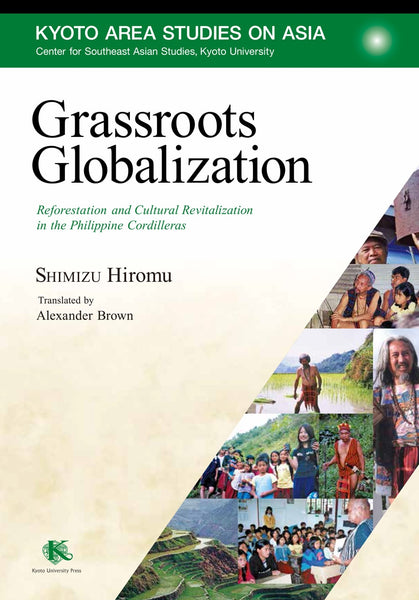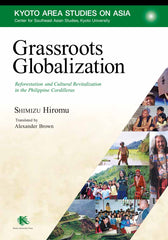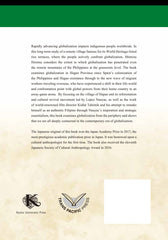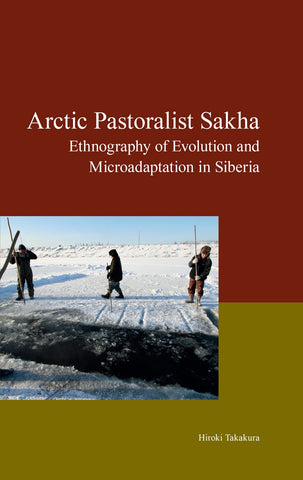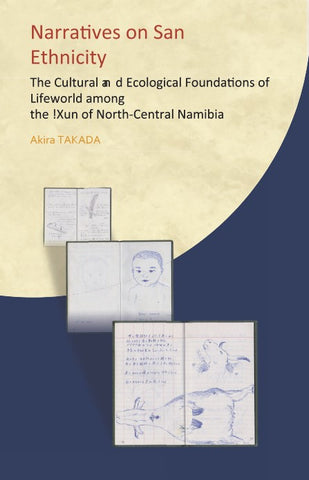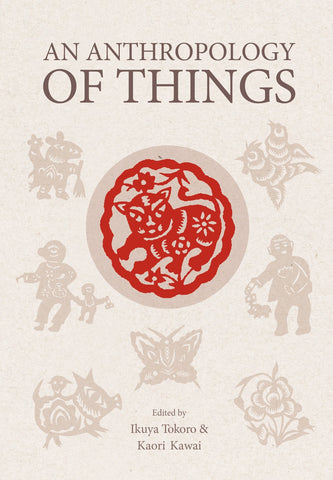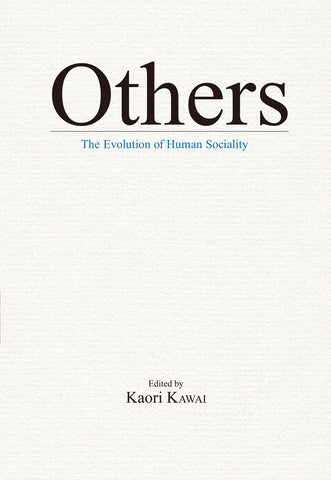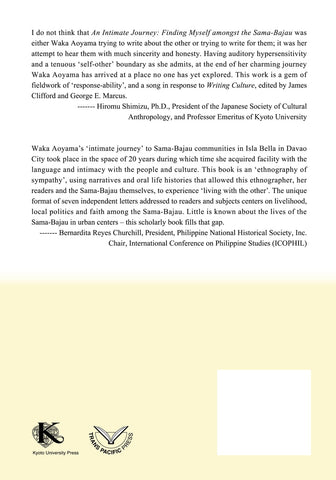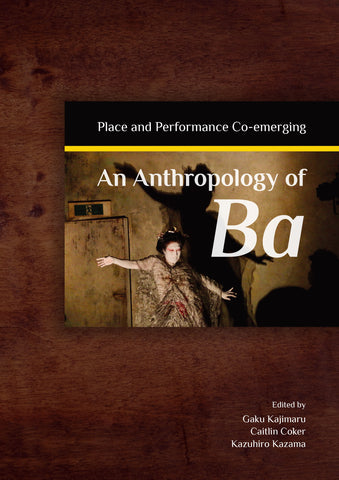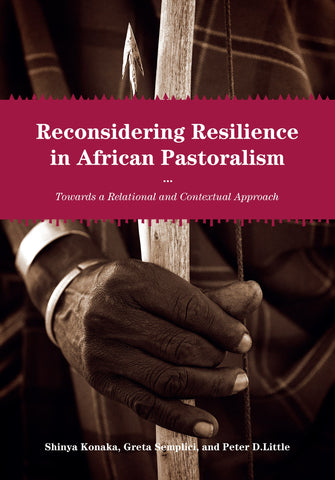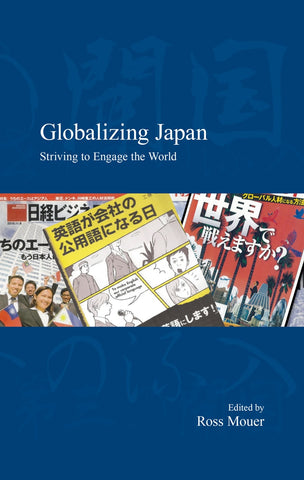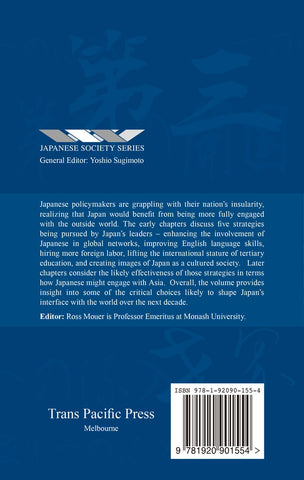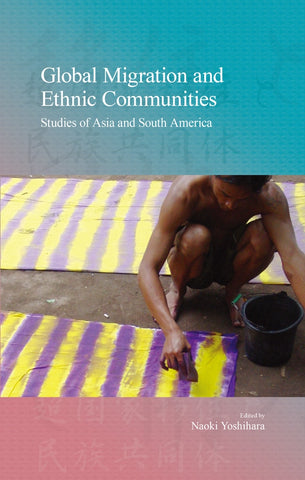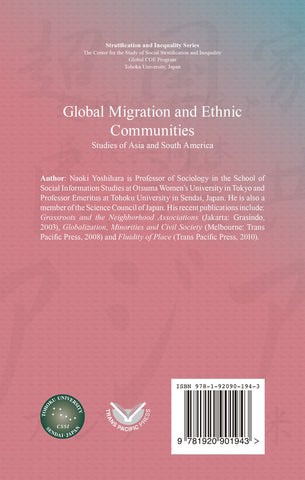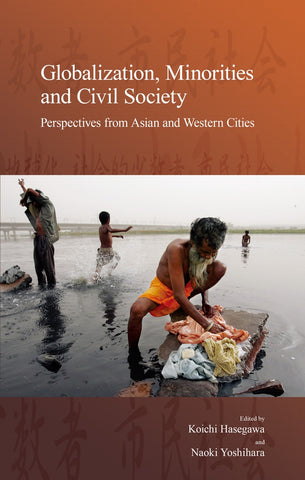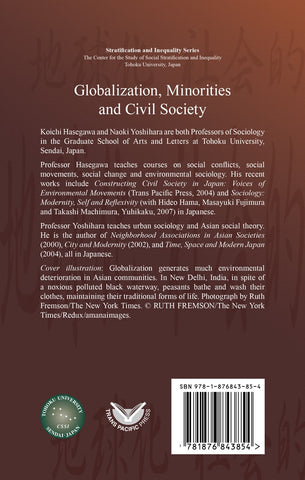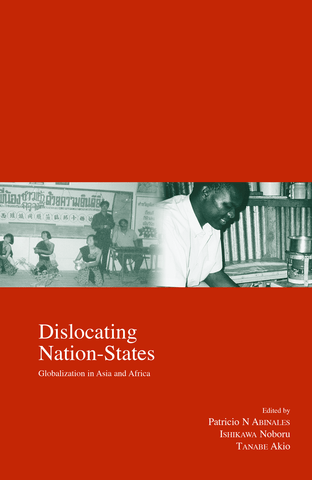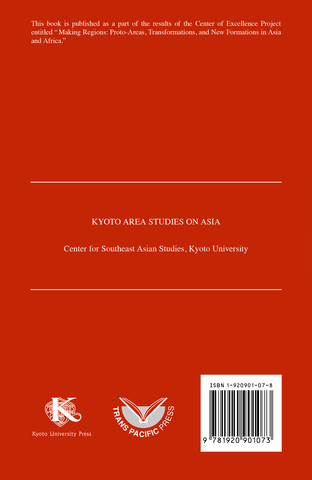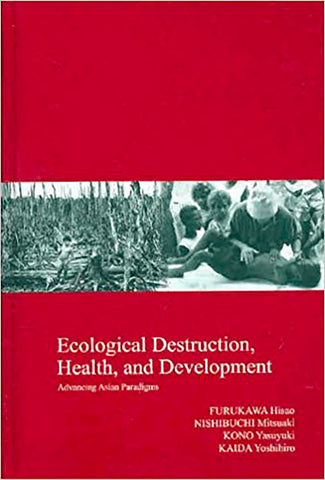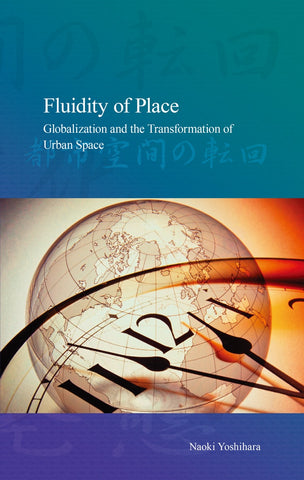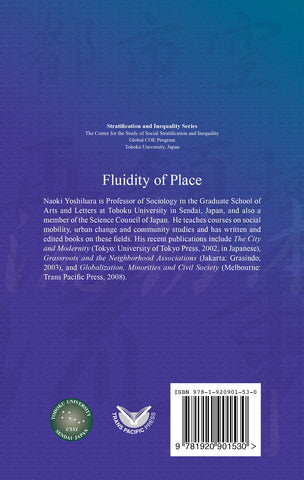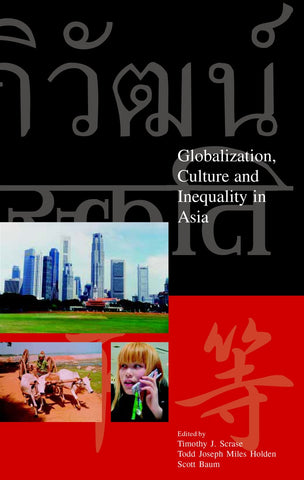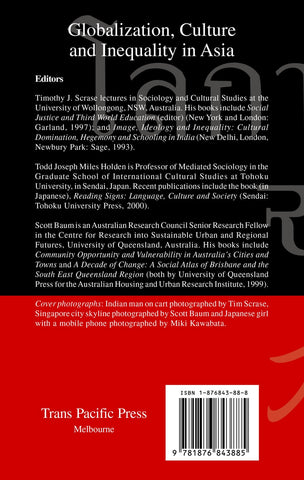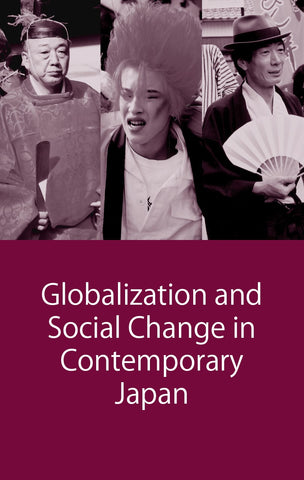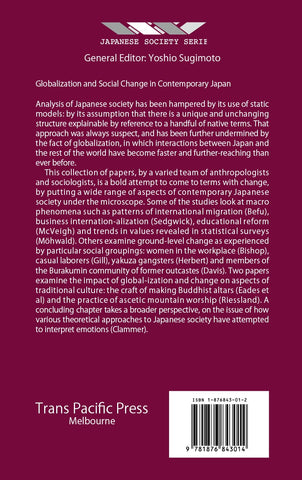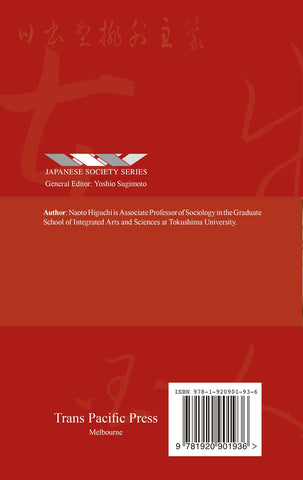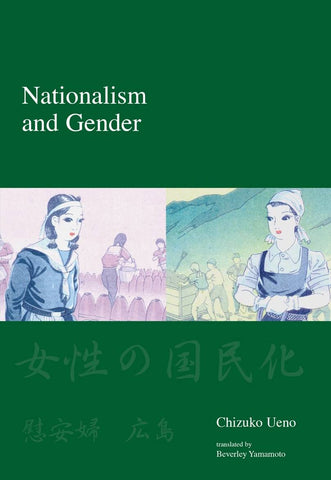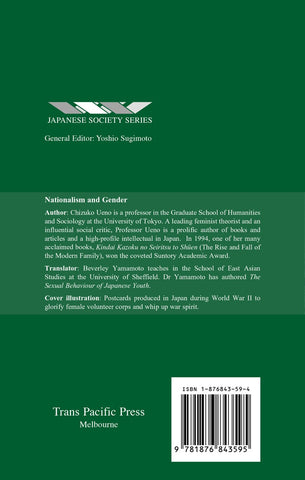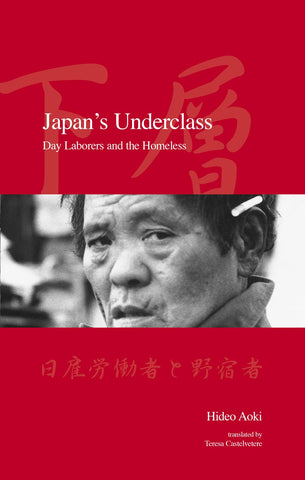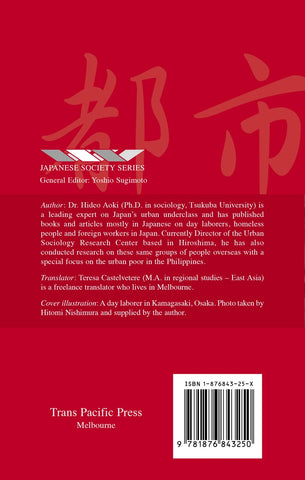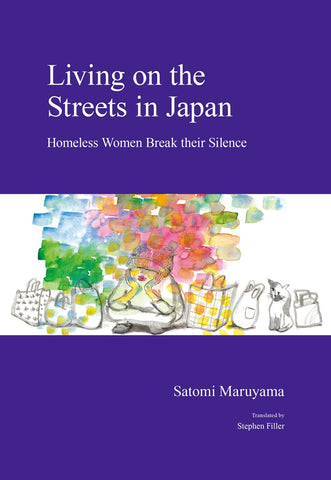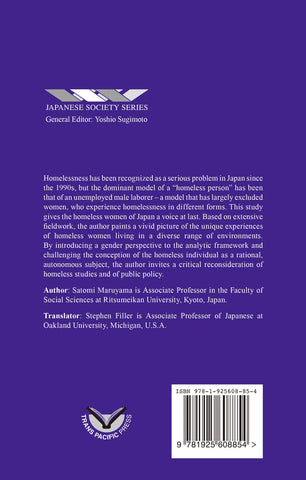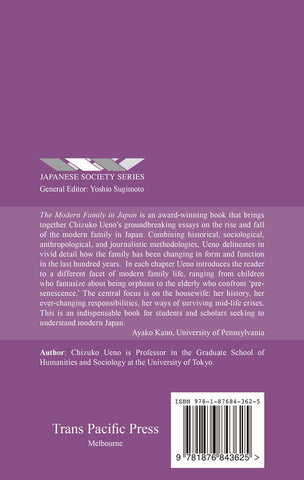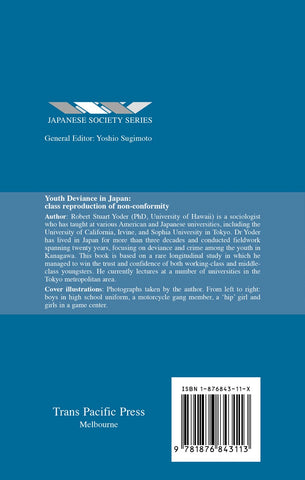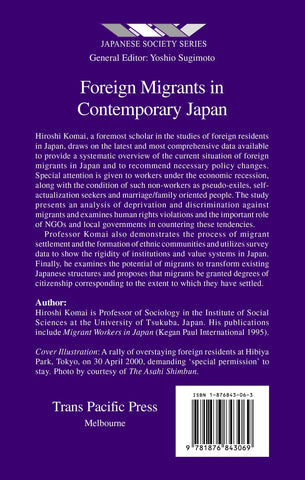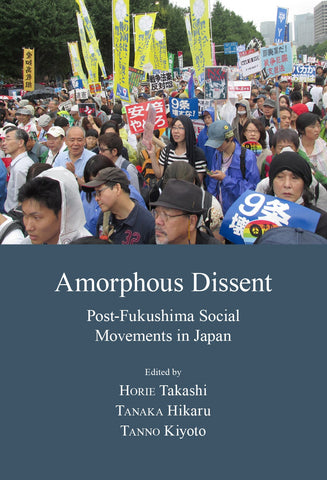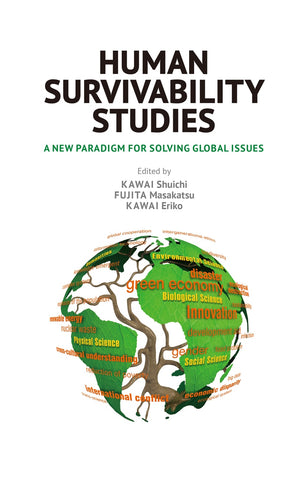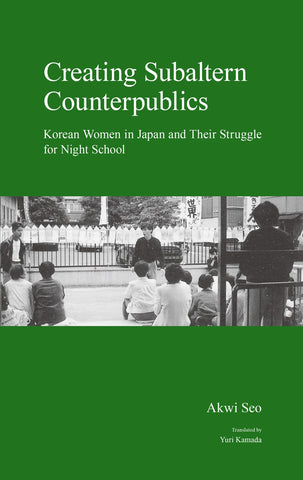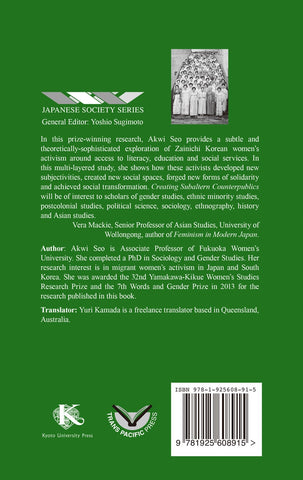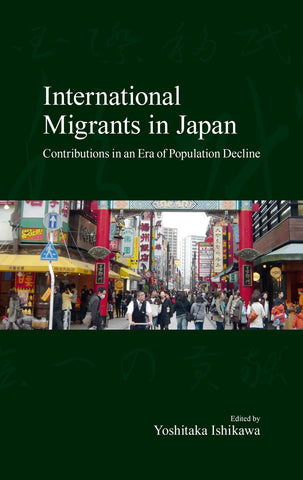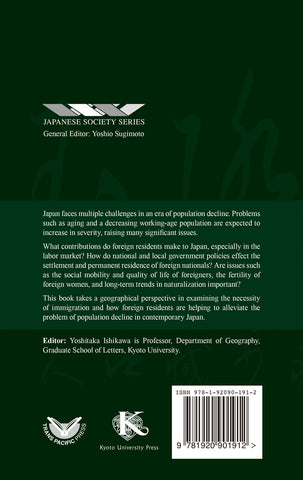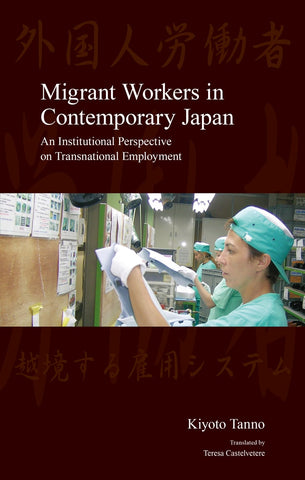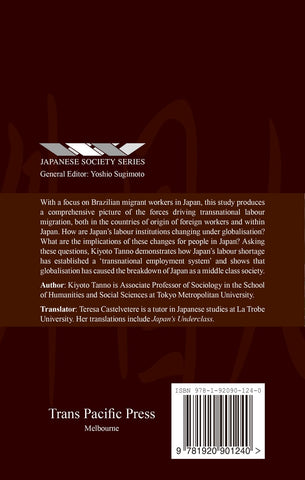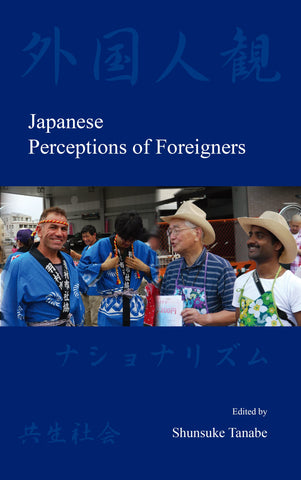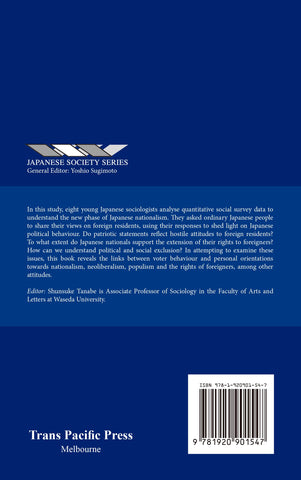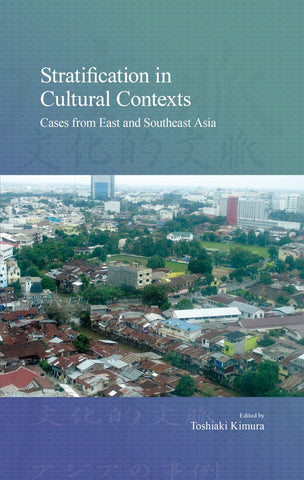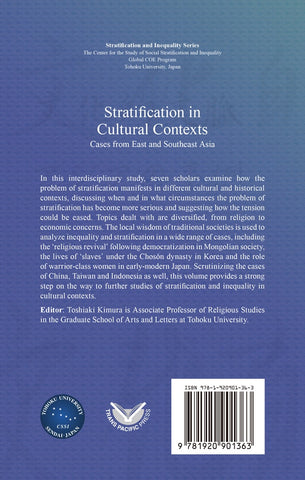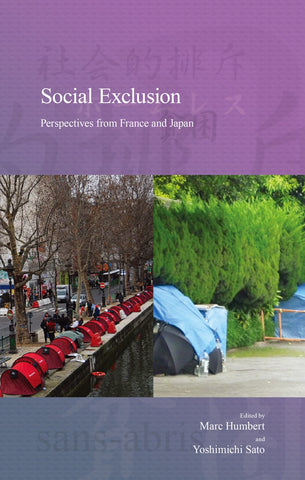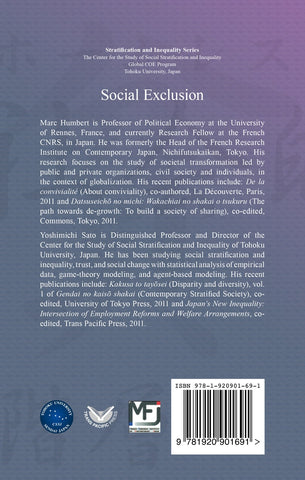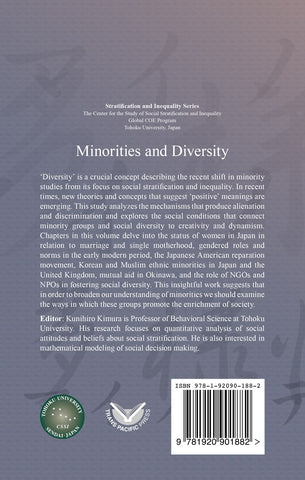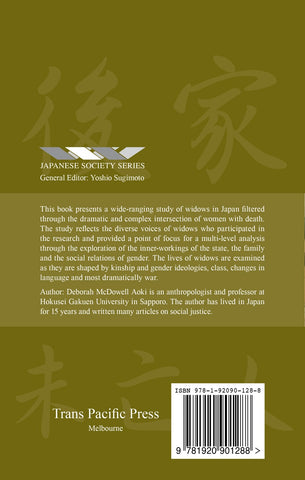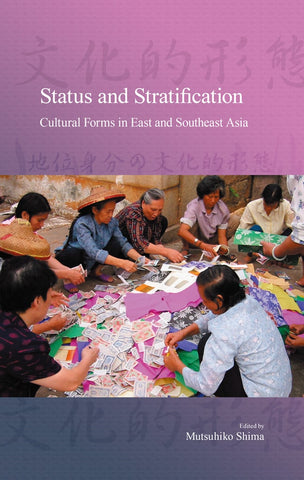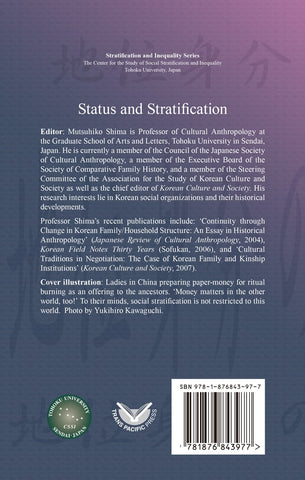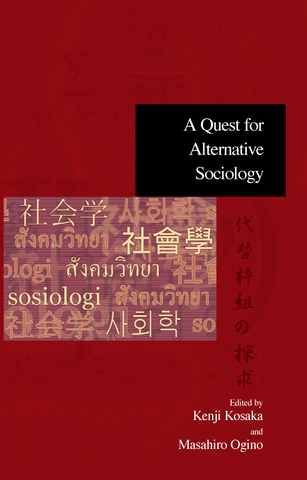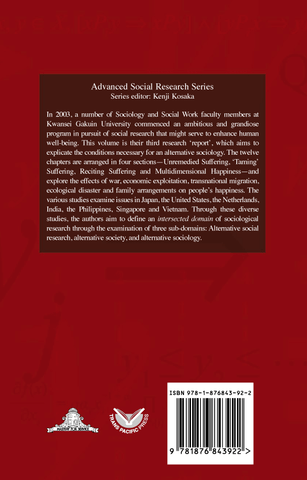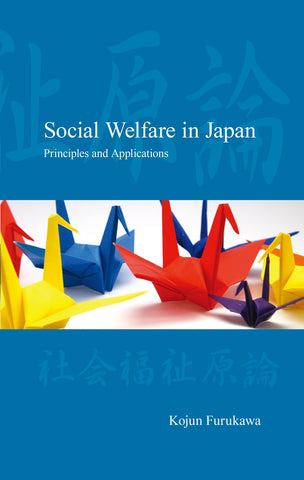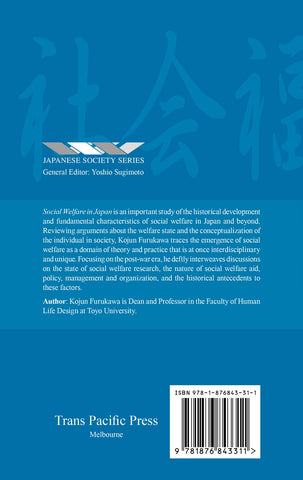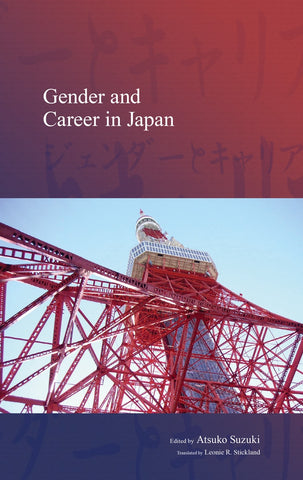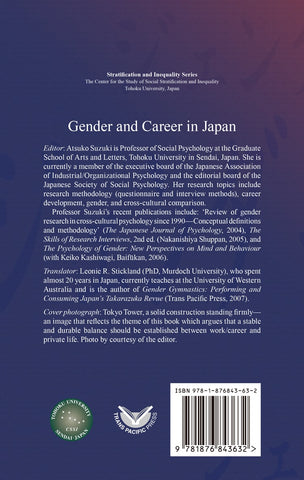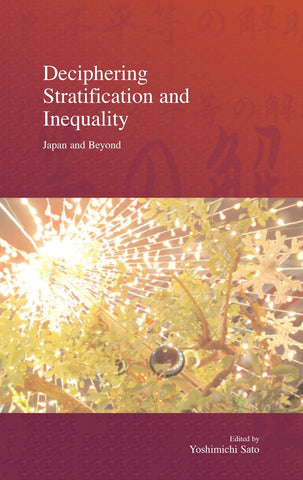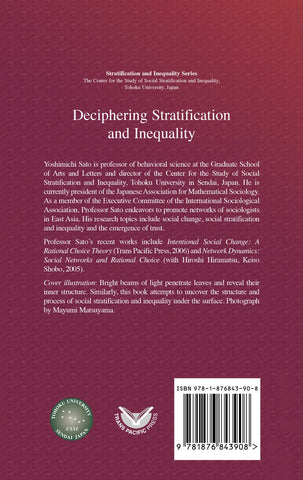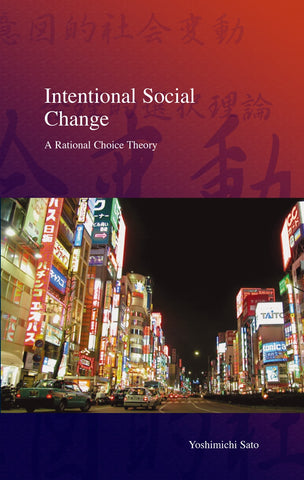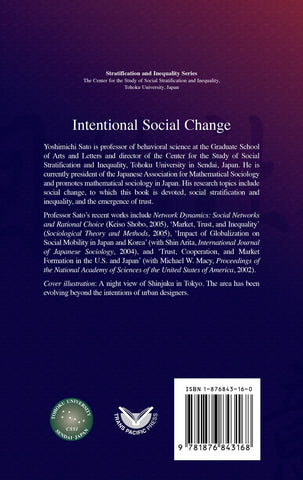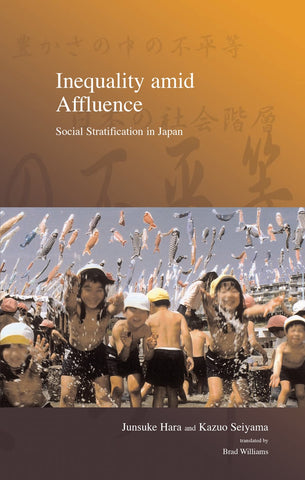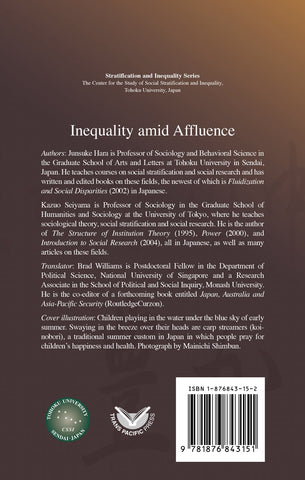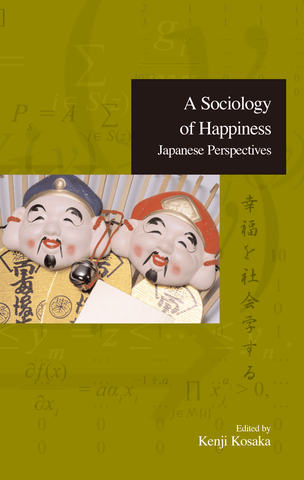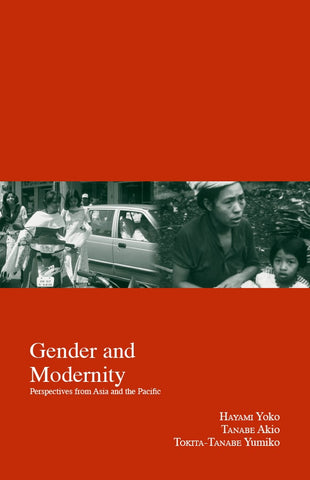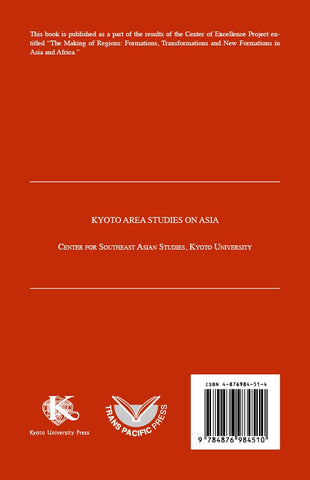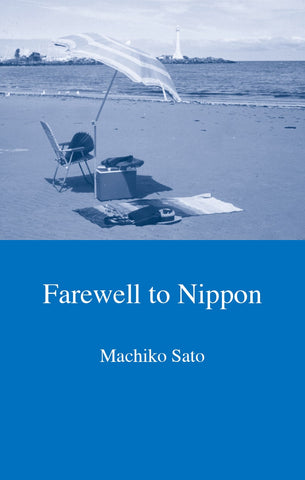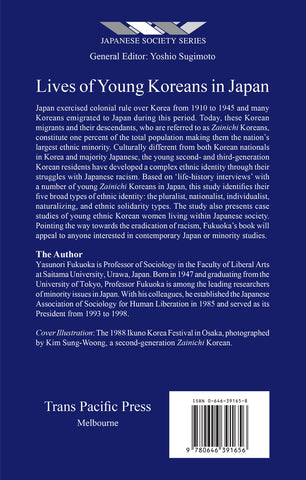Shop by Areas »
Shop by Category »
Grassroots Globalization
Many In Stock
Rapidly advancing globalization impacts indigenous people worldwide. In this long-term study of a remote village famous for its World Heritage-listed rice terraces, where the people actively confront globalization, Shimizu Hiromu considers the extent to which globalization has penetrated even the remote mountains of the Philippines at the grassroots level. The book examines globalization in Ifugao Province since Spain's colonization of the Philippines through to the new wave of migrant workers traveling overseas. By focusing on the village of Hapao and its reforestation and cultural revival movement led by Lopez Nauyac, as well as the work of world-renowned film director Kidlat Tahimik and his attempt to remake himself as an authentic Filipino, this book examines globalization from the periphery and shows that we are all deeply connected in the contemporary era of globalization.
Awards
Japan Academy Prize Japanese Society of Cultural Anthropology Award
About Editors and Authors
SHIMIZU Hiromu is a Japanese cultural anthropologist and Professor at the Center for Southeast Asian Studies of Kyoto University. He began teaching as Lecturer at the University of Tokyo, and served at Kyushu University as Assistant Professor in 1985. He received his PhD in Sociology from the University of Tokyo in 1987 for his thesis titled “Change and Sustainability: Accepting Events in the Society of Pinatubo Aeta” (trans.). He was appointed Professor in the Faculty of Comparative Social Culture, Kyushu University, in 1994, and took up his current position at Kyoto University in 2006. He has received prestigious awards including the Award of the Japanese Society of Cultural Anthropology (2016) and the Japan Academy Award (2017).
Table of contents
Preface
Acknowledgements
1 Thinking about Globalization at the Periphery: An Attempt at an Anthropology of Response ability
Part I: Five Hundred Years of Negotiating with Global Powers
2 The Ifugao Lifeworld: A Fascination for Anthropologists and Communist Guerillas
3 Life amid the Blessings of Forests: Rice Terrace Cultivation and Woodcarving
4 Confronting Global Power from the Margins: Invasions and Resistance
Show More >
Preface
Acknowledgements
1 Thinking about Globalization at the Periphery: An Attempt at an Anthropology of Response ability
Part I: Five Hundred Years of Negotiating with Global Powers
2 The Ifugao Lifeworld: A Fascination for Anthropologists and Communist Guerillas
3 Life amid the Blessings of Forests: Rice Terrace Cultivation and Woodcarving
4 Confronting Global Power from the Margins: Invasions and Resistance
Part II: Re establishing the Connection between the Local and the Global
5 The Praxis of Meaning in Lopez Nauyac's 'Global' Gaze
6 Memories of Overdevelopment: Kidlat Tahimik's 'Circumnavigation of the World'
7 The Politics of Representation: Culture as a Resource
Part III: Negotiating with Globalization
8 Working Overseas and Reviving Tradition: Spreading Wings and Putting Down Roots
9 International Cooperation: From Entanglement to a Participatory Anthropology
10 Grassroots: Regional Networks and the Anthropology of Response-ability
Bibliography
Index
Related Books
-
Native Anthropology$34.95A major task in contemporary anthropology is th...A major task in contemporary anthropology is the creation of dialogic space among all the people concerned with the culture studied, without privileging one kind of discourse over another. Seen glo...
-
The Bushmen$99.95The Bushmen archives nearly 50 years of researc...The Bushmen archives nearly 50 years of research with some of Southern Africa's remotest groups. Author Jiro Tanaka's deep connection with his subject matter is evident through his insightful and o...
-
The Gidra$89.95For 25 years, author Toshio Kawabe and his coll...For 25 years, author Toshio Kawabe and his colleagues periodically lived and worked among the Gidra people of the tropical wet lowland of Papua New Guinea. In this book, Kawabe reports on a continu...
-
Arctic Pastoralist Sakha$84.95The Sakha - traditional cattle and horse pastor...The Sakha - traditional cattle and horse pastoralists and one of the largest ethnic minorities in Siberia - hold a unique position in human adaptation. This book focuses on the cultural history, pr...
-
Narratives on San Ethnicity$44.95The !Xun are a San people living in the Kalahar...The !Xun are a San people living in the Kalahari Desert in Namibia, Botswana, and in Angola. In this book, the cultural and ecological foundations of ethnicity of the !Xun provide a case study for ...
-
An Anthropology of Things$42.95The aim of this book is to highlight the import...The aim of this book is to highlight the important roles that things play in our everyday lives by examining how things and humans interact. Based on ethnographical data from Asia, Africa, and Ocea...
-
Others$45.95As the sequel to Groups (2013) and Institutions...As the sequel to Groups (2013) and Institutions (2017), Others is the third work produced by a collaborative research project involving primatologists and anthropologists on the evolutionary histor...
-
An Intimate Journey$79.95This work offers a comprehensive description of...This work offers a comprehensive description of the lives of the Sama-Bajau people based on ongoing ethnographic research conducted by the author in Davao City, the Philippines, for over two decade...
-
Anthropology of Ba$35.95Do places influence human behavior? In everyday...Do places influence human behavior? In everyday thinking, spaces and places are generally seen as empty vessels where human activity occurs. Digging a bit deeper, we can distinguish spaces from pla...
-
Bushman Folktales$59.95In the Kalahari Desert in southern Africa, tale...In the Kalahari Desert in southern Africa, tales tell of animals who talk to each other, deceive each other and easily transform themselves into human beings. The author, who has followed the lives...
-
Extremes$49.95Humans have always faced the threat of extincti...Humans have always faced the threat of extinction. This book takes a broad perspective of the ‘extreme’ conditions of human existence and survival to examine how extremes have forced humans to chan...
-
Reconsidering Resilience in African Pastoralism$39.99What does resilience mean? This is a question f...What does resilience mean? This is a question frequently asked and one that this book challenges and turns on its head. This book interrogates the increasingly overused concept of resilience by exa...
-
Feathers, Horns and Guardians$45.95The Îgembe region of Kenya is a rich agricultur...The Îgembe region of Kenya is a rich agricultural area on the equator, where people live in a unique time-world. Whenever a problem arises, people do not hasten to a conclusion, but ‘wait’ as a mea...
-
Affectus$54.95We are constantly being influenced and acted up...We are constantly being influenced and acted upon by various people, creatures and things, in other words, by beings outside our bodies. Taking Spinoza’s concept of ‘Affectus’ as a base, this book ...
-
Globalizing Japan$39.95The Japanese people are again struggling with t...The Japanese people are again struggling with their nation's insularity. The Meiji Restoration and the end of the Asia-Pacific War gave way to concerted efforts to connect the country with the outs...
-
Global Migration and Ethnic Communities$34.95This book is a collection of essays on the crit...This book is a collection of essays on the critical subject of migration in a global context. The book offers insights into the broad range of experiences of migrants in diverse settings. It also e...
-
Globalization, Minorities and Civil Society$34.95One effect of globalization has been urban rest...One effect of globalization has been urban restructuring in various cities of Asia, increasing migration from Asia to European cities, and the intensification of debates about citizenship. The mult...
-
Dislocating Nation-States$79.95As much of the world turns its attention to que...As much of the world turns its attention to questions of the role and even survival of the nation-state formation in an increasingly globalized world, the authors of this interdisciplinary volume s...
-
Ecological Destruction, Health, and Development$89.95Uniquely interdisciplinary in orientation, the ...Uniquely interdisciplinary in orientation, the book joins experts in ecology, agriculture, medicine and development studies to produce this large-scale study. The authors argue that a number of qua...
-
Fluidity of Place$34.95Fluidity of Place presents an interdisciplinary...Fluidity of Place presents an interdisciplinary conversation with theories of space-time, place, and globalization at the cutting edge of social theory. Focusing on the construction of urban space ...
-
Globalization, Culture and Inequality in Asia$34.95Contemplating globalization from a sociological...Contemplating globalization from a sociological perspective, it is without doubt that a major site for social, political, economic and cultural change in the new millennium lies in the Asian region...
-
Globalization and Social Change in Contemporary Japan$26.00Analysis of Japanese society has been hampered ...Analysis of Japanese society has been hampered by its use of static models: by its assumption that there is a unique and unchanging structure explainable by reference to a handful of native terms. ...
-
Japan's Ultra-Right$39.95This book is a comprehensive account of the nat...This book is a comprehensive account of the nativist movement in Japan today. Naoto Higuchi uses the life histories of activists to establish that the basis of their support for the movement is the...
-
Nationalism and Gender$29.95This is written by a sociologist and Japan's "m...This is written by a sociologist and Japan's "most famous feminist", Chizuko Ueno. A discursive battle over how Japan's history should be remembered constitutes the most recent, and perhaps the mos...
-
Japan's Underclass$34.95Condemned by economic forces and the prejudices...Condemned by economic forces and the prejudices of others to remain forever in the underclass, the homeless and day laborers in present-day affluent Japan struggle to survive in its cities. Japan's...
-
An Intimate Journey$79.95This work offers a comprehensive description of...This work offers a comprehensive description of the lives of the Sama-Bajau people based on ongoing ethnographic research conducted by the author in Davao City, the Philippines, for over two decade...
-
Living on the Streets in Japan$35.95Homelessness has been recognized as a serious p...Homelessness has been recognized as a serious problem in Japan since the 1990s, but the dominant model of a "homeless person" has been that of an unemployed male laborer - a model that has largely ...
-
Learning English in Japan$84.95Multiple discourses circulate Japanese society ...Multiple discourses circulate Japanese society surrounding the relationship between Japanese people and the English language. For example, 'Japanese people are the worst English speakers in Asia,' ...
-
The Modern Family in Japan$34.95This award-winning book brings together Chizuko...This award-winning book brings together Chizuko Ueno's groundbreaking essays on the rise and fall of the modern family in Japan. Combining historical, sociological, anthropological, and journalisti...
-
Gender Gymnastics$34.95The artifice of gender performance - sometimes ...The artifice of gender performance - sometimes playful, mostly conscientious - has enthralled and entertained audiences of Japan's all-female Takarazuka Revue for more than 90 years. The dashing ma...
-
Youth Deviance in Japan$34.95Based on fieldwork spanning two decades, this b...Based on fieldwork spanning two decades, this book presents a longitudinal study of deviance and crime among youths in Kanagawa-ken, with a focus upon two groups of young people - a working class g...
-
Foreign Migrants in Contemporary Japan$29.95This book overviews the present situation of fo...This book overviews the present situation of foreign migrants in Japan, based on the latest and most comprehensive available data, and presents necessary policy recommendations. Special attention i...
-
Amorphous Dissent$41.95Since the Fukushima nuclear accident in the wak...Since the Fukushima nuclear accident in the wake of the Great East Japan Earthquake of 11 March 2011, Japan has seen a significant revival in its social activism. Large-scale social movements spran...
-
The State Construction of 'Japaneseness'$42.95For more than 140 years, Japan's koseki registr...For more than 140 years, Japan's koseki registration system has functioned as the official means by which an individual qualifies as "Japanese". Information concerning each family is entered into o...
-
Others$45.95As the sequel to Groups (2013) and Institutions...As the sequel to Groups (2013) and Institutions (2017), Others is the third work produced by a collaborative research project involving primatologists and anthropologists on the evolutionary histor...
-
Fighting Prejudice in Japan$44.95This collection of twelve life stories delves i...This collection of twelve life stories delves into the experiences of families of Hansen's Disease (Leprosy) patients who tell their own stories in their own words. In detailed interviews spanning ...
-
Human Survivability Studies$89.95The challenges we face today are growing conspi...The challenges we face today are growing conspicuously broad in scale and complex in nature. Human Survivability Studies is a new transdisciplinary field born from the growing awareness of the urge...
-
An Anthropology of Things$42.95The aim of this book is to highlight the import...The aim of this book is to highlight the important roles that things play in our everyday lives by examining how things and humans interact. Based on ethnographical data from Asia, Africa, and Ocea...
-
Creating Subaltern Counterpublics$89.95This is a study of a political and social movem...This is a study of a political and social movement instigated by older Korean women in Japan, beginning in the 1990s. Koreans in Japan have occupied an unique position among ethnic minority groups....
-
Narratives on San Ethnicity$44.95The !Xun are a San people living in the Kalahar...The !Xun are a San people living in the Kalahari Desert in Namibia, Botswana, and in Angola. In this book, the cultural and ecological foundations of ethnicity of the !Xun provide a case study for ...
-
International Migrants in Japan$84.95Japan faces multiple challenges in an era of po...Japan faces multiple challenges in an era of population decline. Problems such as aging and a decreasing working-age population are expected to increase in severity, so tackling these challenges an...
-
Arctic Pastoralist Sakha$84.95The Sakha - traditional cattle and horse pastor...The Sakha - traditional cattle and horse pastoralists and one of the largest ethnic minorities in Siberia - hold a unique position in human adaptation. This book focuses on the cultural history, pr...
-
The Gidra$89.95For 25 years, author Toshio Kawabe and his coll...For 25 years, author Toshio Kawabe and his colleagues periodically lived and worked among the Gidra people of the tropical wet lowland of Papua New Guinea. In this book, Kawabe reports on a continu...
-
The Bushmen$99.95The Bushmen archives nearly 50 years of researc...The Bushmen archives nearly 50 years of research with some of Southern Africa's remotest groups. Author Jiro Tanaka's deep connection with his subject matter is evident through his insightful and o...
-
Migrant Workers in Contemporary Japan$34.95With a focus on Brazilian migrant workers in Ja...With a focus on Brazilian migrant workers in Japan, this study produces a comprehensive picture of the forces driving transnational labor migration, both in the countries of origin of foreign worke...
-
Japanese Perceptions of Foreigners$79.95In this study, eight young Japanese sociologist...In this study, eight young Japanese sociologists analyze quantitative social survey data to understand the new phase of Japanese nationalism. They asked ordinary Japanese people to share their view...
-
Stratification in Cultural Contexts$34.95Stratification in Cultural Contexts is a collec...Stratification in Cultural Contexts is a collection drawn from research results of the East Asian Division of the Center for the Study of Social Stratification and Inequality at Tohoku University. ...
-
Social Exclusion$34.95Just within a few decades, the global dream of ...Just within a few decades, the global dream of building a 'middle class society' has vanished almost everywhere, giving way to an emerging global nightmare: 'social exclusion.' France and Japan hav...
-
Class Structure in Contemporary Japan$29.95The author, Hashimoto, has been a solitary voic...The author, Hashimoto, has been a solitary voice in the social stratification analysis of Japanese society for the last two decades presenting its class structure in Marxian terms. His models and f...
-
Minorities and Diversity$34.95Diversity' is a crucial concept describing the ...Diversity' is a crucial concept describing the recent shift in minority studies away from its focus on social stratification and inequality. In recent times, new theories and concepts that suggest ...
-
Widows of Japan$34.95This book presents a wide-ranging study of wido...This book presents a wide-ranging study of widows in Japan, filtered through the dramatic and complex intersection of women with death. These experiences are portrayed as intensely personal and yet...
-
Poverty and Social Welfare in Japan$34.95Due to the chorus of admiration that recognizes...Due to the chorus of admiration that recognizes Japan having become the world's second largest economy in the latter half of the 20th century, the awareness of poverty in Japan has been concealed. ...
-
Status and Stratification$34.95Exploring the myriad ways that status and strat...Exploring the myriad ways that status and stratification manifest in different cultural contexts, this collection presents in-depth studies of a variety of cultural forms in Asia. The first of the ...
-
A Quest for Alternative Sociology$39.95In 2003, a number of sociology and social work ...In 2003, a number of sociology and social work faculty members at Kwansei Gakuin University (Japan) commenced an ambitious program in pursuit of social research that might serve to enhance human we...
-
Social Welfare in Japan$79.95Social Welfare in Japan is an important study o...Social Welfare in Japan is an important study of the historical development and fundamental characteristics of social welfare in Japan and beyond. Reviewing arguments about the welfare state and th...
-
Gender and Career in Japan$34.95In Japanese society, gender has long been a maj...In Japanese society, gender has long been a major determinant of individuals' work-career and life trajectory. Due to the complexity of this social phenomenon, Gender and Career in Japan probes the...
-
Deciphering Stratification and Inequality$34.95Employing a diverse range of quantitative and q...Employing a diverse range of quantitative and qualitative methodologies, this book offers a complex examination of the changing nature of social stratification and its subsequent impact on inequali...
-
Frontiers of Social Research$34.95This title is the second volume of the Advanced...This title is the second volume of the Advanced Social Research series which Trans Pacific Press publishes in collaboration with Kwansei Gakuin University in Japan. In this collection, thirteen ess...
-
Intentional Social Change$34.95Why do some efforts to implement social change ...Why do some efforts to implement social change succeed while others fail? Yoshimichi Sato observes in this book that existing theories focus on social action at either the micro- or the macro-level...
-
Inequality amid Affluence$34.95Highlighting the limits of existing approaches ...Highlighting the limits of existing approaches in the study of stratification in contemporary Japanese society, Inequality Amid Affluence adopts a new framework that distinguishes between the conce...
-
A Sociology of Happiness$34.95Written by the sociologists at Kwansei Gakuin U...Written by the sociologists at Kwansei Gakuin University who are engaged in 'Social Research for the Enhancement of Human Well-being', this study explores issues of happiness from a wide variety of...
-
Native Anthropology$34.95A major task in contemporary anthropology is th...A major task in contemporary anthropology is the creation of dialogic space among all the people concerned with the culture studied, without privileging one kind of discourse over another. Seen glo...
-
Gender and Modernity$34.95Drawing on a wealth of ethnographic fieldwork, ...Drawing on a wealth of ethnographic fieldwork, this anthology examines the complexities of identity formation and self-positioning in post-colonial contexts, ranging from the impact of Christian mi...
-
Farewell to Nippon$29.00This study presents an ethnographic account of ...This study presents an ethnographic account of a fresh breed of emigrants who have left Japan to settle in Australia in pursuit of a better quality of life. They differ from "economic migrants" who...
-
Coming Out in Japan$29.00Traditionally the Japanese have shunned those n...Traditionally the Japanese have shunned those not fitting the majority heterosexual mould. Those with a homosexual orientation have always endured an uncomfortable existence in a culture which cond...
-
Lives of Young Koreans in Japan$49.95Japan exercised colonial rule over Korea from 1...Japan exercised colonial rule over Korea from 1910 to 1945 and many Koreans emigrated to Japan during this period. Today, these Korean migrants and their descendants, who are referred to as Zainich...
